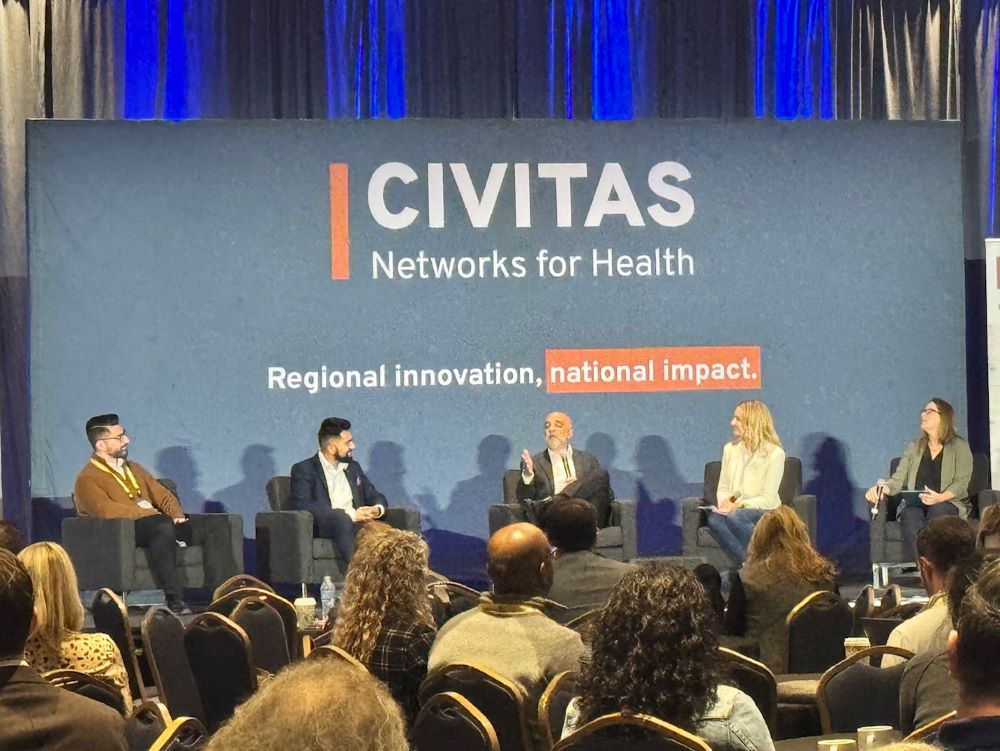
The AI Governance Keynote Panel brought together top leaders to tackle the complexities of artificial intelligence (AI) in healthcare. Moderated by Lisa Bari, CEO of Civitas Networks for Health, the panel featured insights from Micky Tripathi, Ph.D., MPP, Assistant Secretary for Technology Policy and Acting Chief AI Officer at HHS, Grace Cordovano, Ph.D., Founder of Enlightening Results, Smit Patel, PharmD, Director of Digital Health and AI at DiMe, and Ahmad Alkasir, DrPH, Policy Program Manager at the Ellison Institute of Technology.
The conversation touched on the rapid rise of AI and the critical need for multi-stakeholder governance to prevent harm and build trust. Key themes included:
- Patient and provider involvement: With 97% of patients concerned about the potential risks of AI, the panel emphasized the importance of public-private cooperation and human oversight in AI deployment.
- Bias in data: Panelists stressed that bias in algorithms reflects bias in the underlying data. Addressing systemic inequities—such as racism in healthcare data—requires transparent governance and inclusion of diverse stakeholders.
- Governance models: Micky Tripathi highlighted that healthcare organizations are already embedding AI principles into processes, like incorporating data guidelines into RFPs, even before formal regulations are in place. However, governance becomes more complex with different stages of AI (pre- and post-deployment) and across various modalities, with radiology and imaging leading the way in FDA-approved AI use cases.
- Challenges of AI oversight: Budgetary constraints are a concern for agencies like the FDA, which lack the immediate capacity to hire staff with the training to review AI-assisted documents. Proposed solutions include AI assurance labs to test models independently, ensuring performance and accountability.
- Health equity and trust: The panel also explored how AI governance must consider cultural nuances. Trust varies across demographics—what works for one community may not resonate with another. Regulations like HIPAA offer some flexibility, but the consensus was that transparency and accountability are essential as AI evolves.



